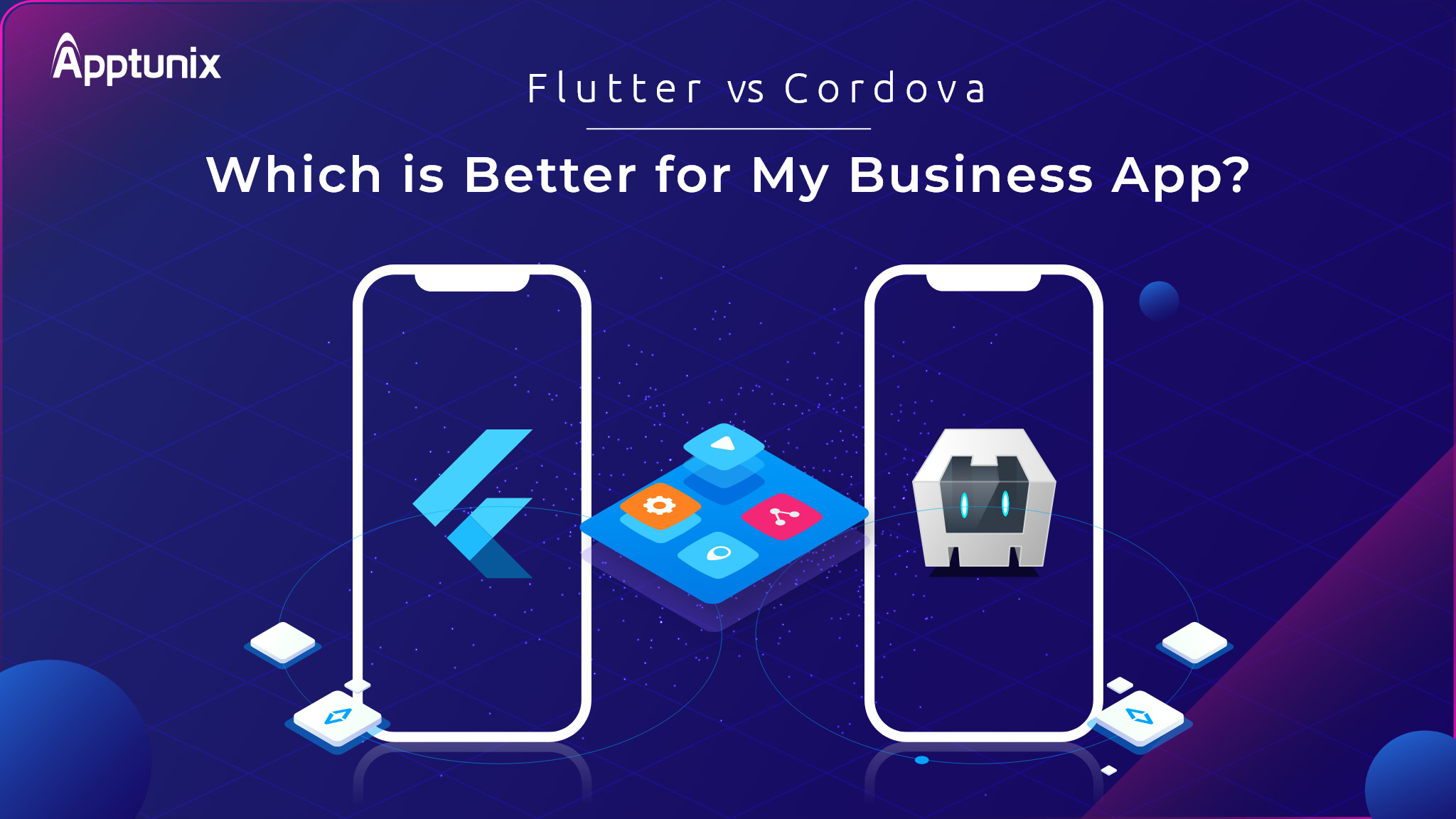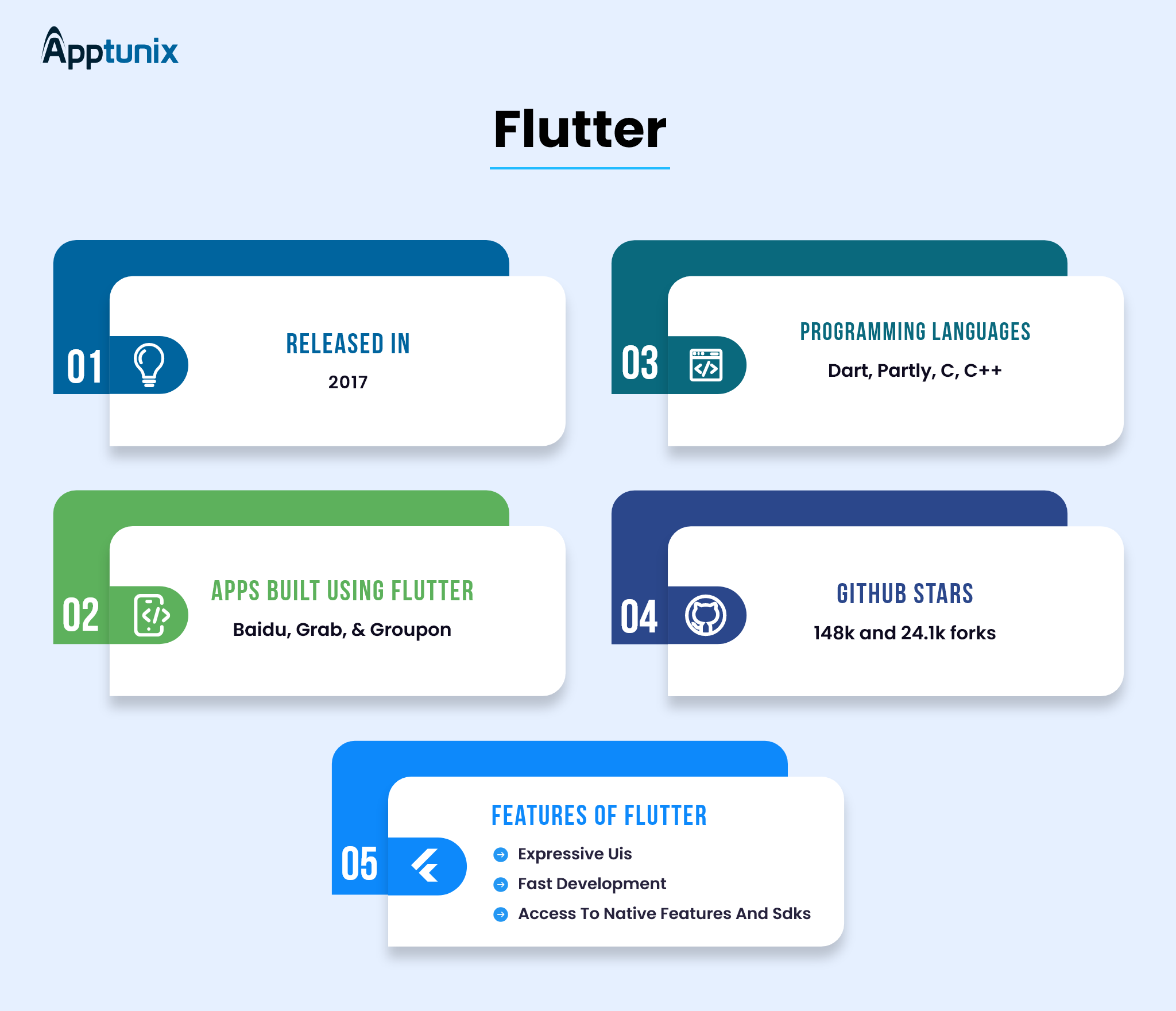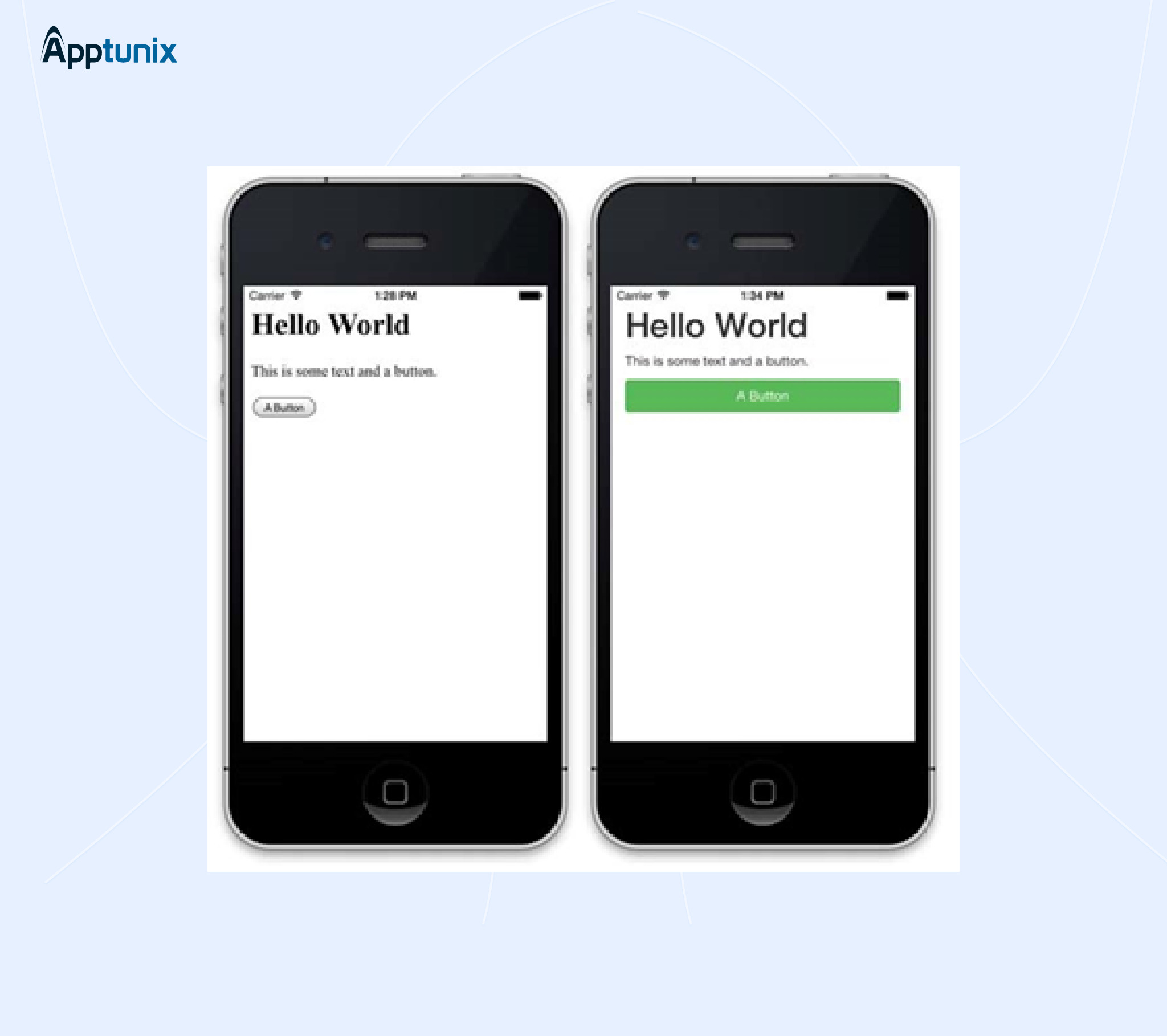Don't miss the chance to work with top 1% of developers.
Sign Up Now and Get FREE CTO-level Consultation.
Confused about your business model?
Request a FREE Business Plan.
Cordova vs Flutter: Which is Better for My Business App?

So you are planning to develop an app. Well, there are and always be budget constraints because developing an app is always expensive.
If you also think like this, you are not right! Developing and launching an application is no more expensive after the advent of cross-platform technologies. They have one easy-to-understand rule!
Just code once and deploy your app anywhere. That means you can develop one mobile app for Android, iOS, desktop, and other platforms and launch it to target all audiences. Isn’t it amazing?
With this approach, you will save time as well as money. Flutter and Cordova are two such technologies that help you build cross-platform applications.
While there are many other Cross-Platform Technologies that you can use to develop such apps, we will talk about Flutter vs Cordova in this blog. Let’s find out which one is better out of these two and most suitable for your business app. Here we go.
What is Apache Cordova?

Developed by Apache in 2009, Cordova is an open-source cross-platform development framework. It uses standard web technologies like HTML, JavaScript, and CSS to develop or convert web apps into mobile applications. Along with iOS and Android, you can also develop apps for Blackberry 10, Ubuntu, Windows, WP8, and OS X. using Cordova.
It is easy to use, free, and lets you do advanced customizations with JavaScript. Here is Cordova’s architecture:

Advantages of Cordova
- Open-source and free
- Easy to learn as it is based on the most popular web technologies
- High speed and good performance
- Works well for the development of PoC or MVP
Disadvantages of Cordova
- Can not provide a fully native experience
- Performance is not top-notch
- Little or no community support
What is Flutter?

Released in 2017, Flutter is also an open-source software development kit built and backed by Google. Using Flutter, you can build high-performing and high-fidelity applications for Android, iOS, Web, Linux, macOS, and Windows using a single codebase.
Apps developed using Flutter provide a native-like experience on mobile devices and that’s why it is one of the most preferred frameworks for app development. Here is Flutter’s architecture with three layers – Embedder (the lowest layer), Engine, and Framework (the highest layer).

Advantages of Flutter
- Open-source and free
- A complete set of tools for mobile app development
- Hot reloading and ready-made widgets make app development faster
- Delivers native-like app experience
- Full customization and intricate designs
Disadvantages of Flutter
- Not easy to learn as Dart is a complex language
- Dart is platform-specific so less support is available
Now that you have an idea of what Flutter and Cordova are, let’s compare both of these cross-platform frameworks against each other and get into the details.
Also Read: This is How to Build a Flutter Web App in 2023 [8 Steps]
Cordova vs Flutter: Which Is Better for My Business App?
While Flutter and Cordova both are good at what they do, differences exist and one is surely better than the other. Here is a head-to-head comparison between Flutter and Cordova to help you understand the main differences between these two technologies:
Let’s now compare Flutter and Cordova against different factors in detail to find out which one is better for your business mobile application:

1. Popularity
While Flutter and Cordova are both well-known cross-platform technologies in the mobile app development market, Flutter is more popular than Cordova because of its amazing features.
According to a 2021 developer survey by Statista, more than 40% of global developers used Flutter while only 16% used Cordova in 2021. On the contrary, the popularity of both frameworks was almost the same in 2019, as per the data. It shows while Flutter’s popularity is increasing over time, Cordova’s prominence is decreasing in the market.

Cordova was without a doubt a very popular framework for developing mobile apps when cross-platform technologies were new in the market. However, after the arrival of new and better options like React Native and Flutter, its popularity is decreasing and some people even believe that it is a dead framework now.
Winner: Flutter
2. Performance and Platform Support
Flutter is a new-gen cross-platform app development framework that is developed keeping the requirements of modern customers in mind. On the other hand, Cordova is a comparatively older framework but it is also the more established one. Here is a list of platforms that Cordova supports:

While Cordova supports a large number of platforms, Cordova apps execute in a WebView, limiting the experience and performance of native UI. WebViews on devices with high-end hardware perform well but on cheaper models, the performance gets distorted. It also does not have cache management which results in memory leaks. That’s why Cordova is never a preferred option for graphic-intensive apps.
Furthermore, Cordova accesses native device features through plugins, which further lessen the performance of apps that depend on CPU and GPU when compared with native apps.
However, there is no such problem in Flutter as it has its own rendering engine. It eliminated the requirement for a bridge between its modules, resulting in outstanding performance even on platforms with outdated hardware. Here is a list of platforms that Flutter supports:

Winner: Flutter
Also Read: Flutter vs React Native: Which is Better?
3. Testing and Debugging
To ensure a bug-free experience, it is essential to analyze, test, and debug a mobile application before launching a feature. Also, an easy and fast testing process plays an important role in deciding app development quality and speed. That’s why you must choose a framework that provides an easy way to test your app for quality assurance.
While both Flutter and Cordova have features like Hot Reloading and Live Reloading, Flutter is way faster than Cordova. It supports automated testing to analyze code and mark down possible errors. Hot reloading instantly makes changes in the app after any changes in the code.
While having some easy-to-use debugging tools, Cordova does not have such automated testing functions as Flutter. However, you can use LiveReload, which is very much similar to Hot Reload to help you save time on recompiling the updates after changes in the code.
Winner: Flutter
4. User Interface
Mobile apps that are built using Cordova have a UI that runs in a WebView. It means that the app can maintain the same look across all platforms – iOS, Android, and others. While it may benefit in some cases, this similarity is not usually good. That’s the reason why apps built in Cordova do not look and feel native. They look more like websites in an app.
Cordova does not offer a UI framework for mobile app development. It just takes your HTML as you code it and runs it on the device. The HTML and CSS you code may not be optimized for mobile and designs may feel awkward on mobile. The text may be hard to read or buttons can be difficult to click, resulting in a bad user experience.
Cordova will not automatically fix these issues for you but you will have to do this optimization using several solutions like Bootstrap. Here is how a mobile-optimized (right) and non-optimized (left) Cordova application look on mobile:

When working with Flutter, you can decide whether your application will look native or the same on all platforms. Several tools permit you to customize UI easily.
Flutter does not utilize native UI components of the platform, however, it consequently updates the app’s look (by changing elements like tapping animation, and scrolling speed) as required by the platform’s visual style. This way, apps built on Flutter function just like native apps and deliver a seamless experience.
In addition, Flutter utilizes Skia for rendering apps on the platform. Because of this Flutter engine, the UI created on Flutter can be launched on any platform. Just because you do not have to make the UI adjustments to transfer apps to a platform, development speed increases.
Winner: Flutter
5. Learning Curve
Cordova is based on the most popular and basic technologies used in the web development industry – HTML, CSS, and Javascript. That’s why it is easy to learn and understand. Any developer can start working on Cordova within a week.
However, before learning Flutter, a developer should have a basic understanding of Dart. It takes time to learn Dart before being able to use Flutter effectively.
Winner: Cordova
6. Documentation
When it comes to documentation, Flutter is far better than Cordova. The documentation for Cordova is almost non-existent and if you want to learn this platform, you are on your own. On the other hand, Flutter has plenty of resources available including official documentation, tutorials, online courses, and even books.
Winner: Flutter
So, Which is the Better Choice?
As it is clear from the above discussion, Flutter is a preferred choice for many businesses today because of so many reasons. While Apache Cordova acquired many supporters in the industry, its popularity is now falling because of the better options available in the market.
Compared to Cordova, Flutter has many features that modern-day apps require and its future seems much brighter. Launched and backed by Google, it is the most popular cross-platform app development framework despite only being six years old. Here is what you should select for your project:
Go with Flutter, if:
- You have the budget to hire proficient Flutter developers
- You need a modern application with great UI and performance
- Your application will have to be graphic-intensive
Go with Cordova, if:
- You need a quick prototype or MVP
- You have a budget constraint
- You do not have time to hire Flutter developers or to learn Dart
Having around a decade of experience, we at Apptunix, prefer Flutter over Cordova for developing high-performing mobile applications. It provides our team the flexibility to be unique and agile at the same time, owing to its amazing features like hot reloading, its own rendering engine, accessible native features and SDKs, and the potential ability to go beyond mobile.

Rate this article!
Join 60,000+ Subscribers
Get the weekly updates on the newest brand stories, business models and technology right in your inbox.

Nikhil Bansal is the Founder and CEO of Apptunix, a leading Software Development Company helping startups as well as brands in streamlining their business processes with intuitive and powerful mobile apps. After working in the iOS app development industry for more than 10 years, he is now well-equipped with excellent problem-solving and decision-making techniques.

App Monetization Strategies: How to Make Money From an App?
Your app can draw revenue in many ways. All you need to figure out is suitable strategies that best fit your content, your audience, and your needs. This eGuide will put light on the same.
Download Now!Don't Know Much
About Technology?
Let our experts help you decide the right tech stack for your idea.

















